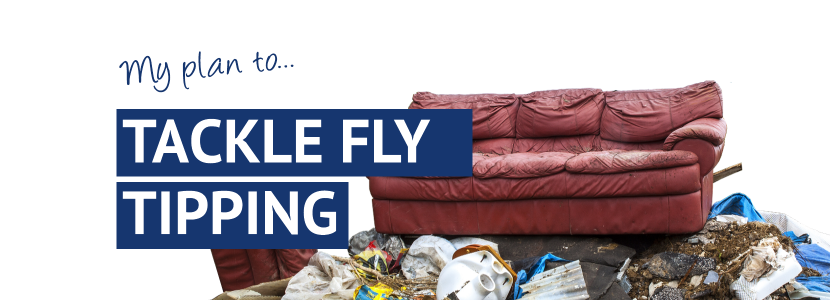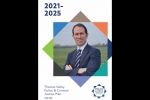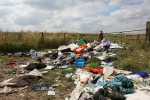
Blight on the countryside or big business? In the case of fly-tipping it is both. To some people the odd bag of rubbish dumped in a gateway or some waste in the corner of a housing estate is little more than an annoyance, but what we are witnessing is organised criminality that seeks to exploit communities for significant financial gain and with scant regard for the environmental consequences.
An independent report published three years ago estimated the cost to the economy of organised waste crime at between £600m and £1bn - to put that into context, the entire budget for policing in Thames Valley is just short of £500m!
Often these estimates of “costs to the economy” can seem rather abstract, but if you are a landowner - large or small who has waste dumped on their land, the impact is very real. You may be a farmer with many acres, a business with a large operation, or simply a private individual who has the misfortune to find someone else’s waste on your property. Tracking down the culprits can be incredibly difficult and if on private land, the costs of the clean up are down to you! Even if the rubbish is on public land it will be the local council, and therefore all of us as taxpayers will pick up the bill.
More often than not this is the work of serious organised criminals. It is not uncommon for them to have a link to at least one, apparently legitimate, business. The scale of the business can be mind boggling. To many of us it may just appear to be a “man with a van”, yet this criminal industry can generate millions of tonnes of waste each year.
Part of the challenge of tackling the problem is the patchwork of responsibilities. The police have a role in some larger cases, but it is often limited. Local councils are generally the primary authority but there is also a role for HMRC and of course the Environment Agency. Alongside the myriad of public bodies involved, there are of course thousands of private individuals and landowners who are impacted by the cost and disruption caused by this crime.
Intimidation and threats are business as usual for those who consider this crime their trade. In order to tackle this blight we need to be more organised than the criminals. In areas such as the Thames Valley with so many different local councils, coordination is key. That is why I am proposing an Organised Waste Crime Task Force. We have seen great successes from collaboration through GAIN (the Government Agency Intelligence Network) in tackling organised criminals, and we need to emulate that success in dealing with waste crime. We need to take seriously what has, for far too long, been considered little more than a nuisance.
I have seen great examples of local council enforcement officers using their powers and working closely with the police and the Environment Agency to secure significant prosecutions. There is no reason why this should not be repeated and scaled up. A strategic approach that ensures intelligence is shared, evidence gathered, prosecutions sought, and even more importantly, suitable penalties imposed, can make a real difference to our communities and our environment.
If elected as PCC for the Thames Valley I will invite all of the agencies involved to come together to form this task force with the clear aim of disrupting organised crime, prosecuting those responsible, and ultimately reducing fly-tipping across the Thames Valley.





